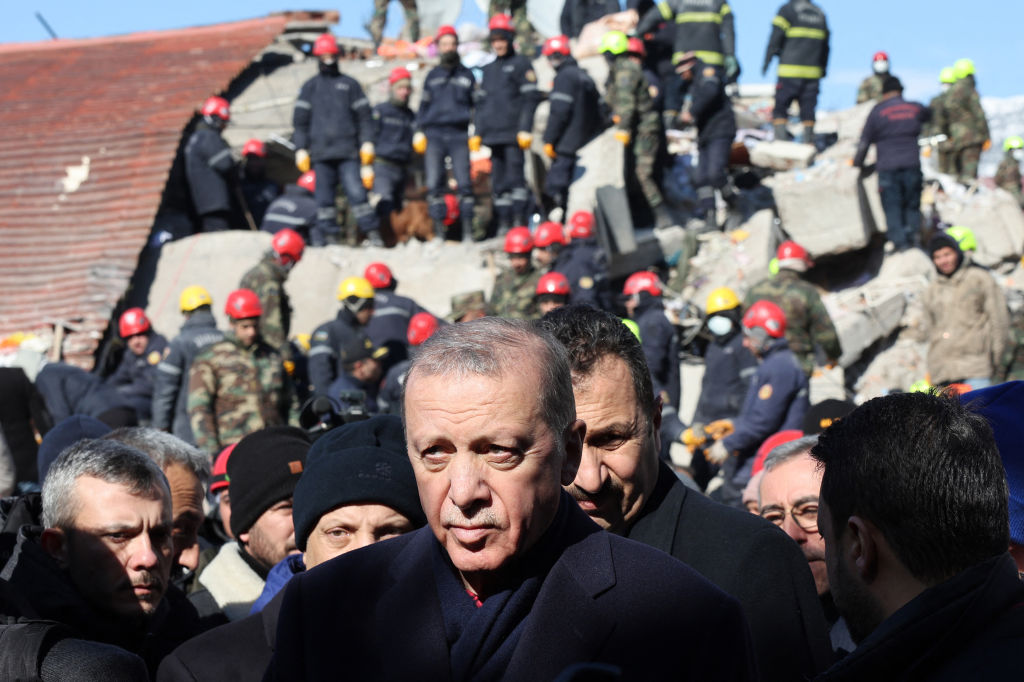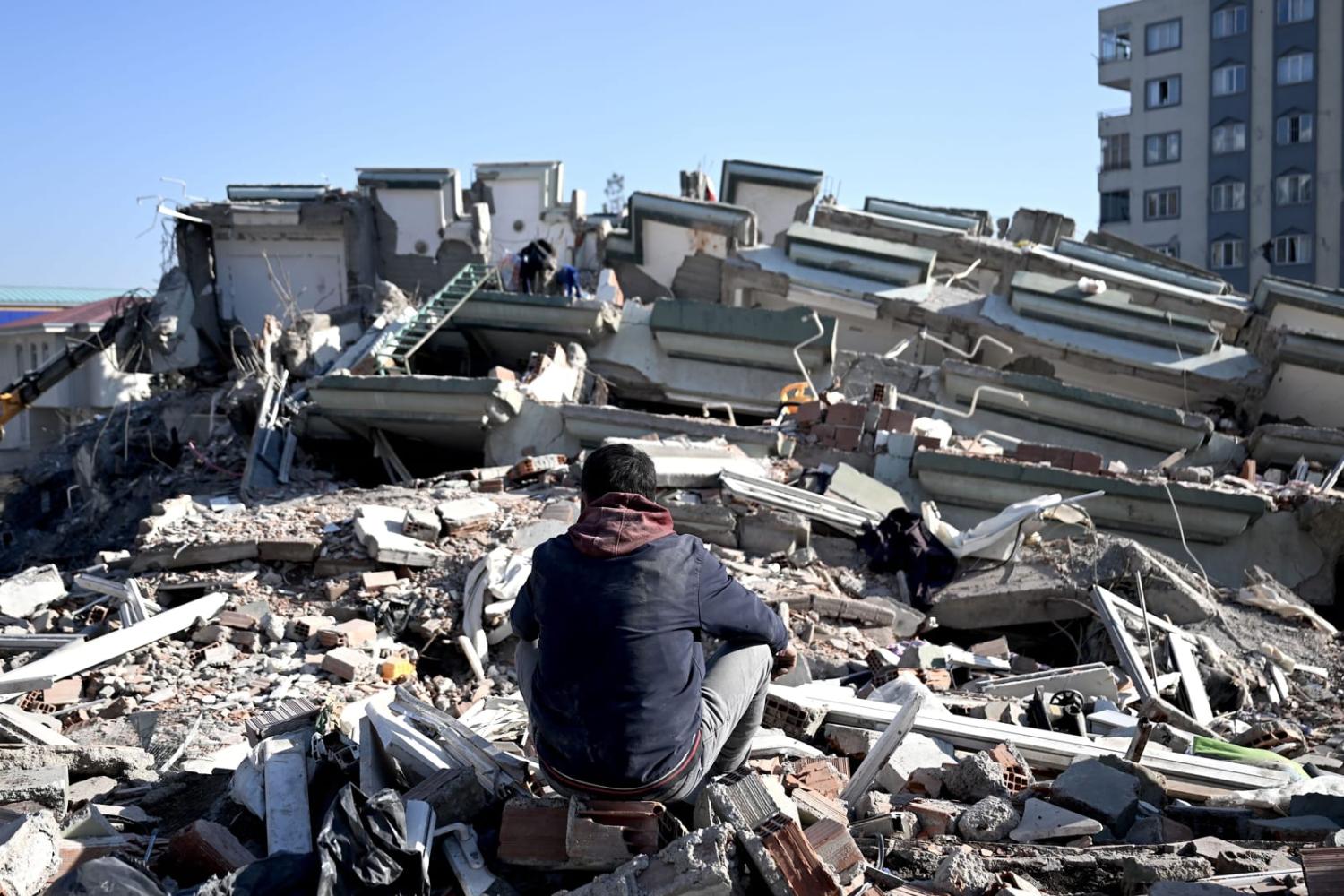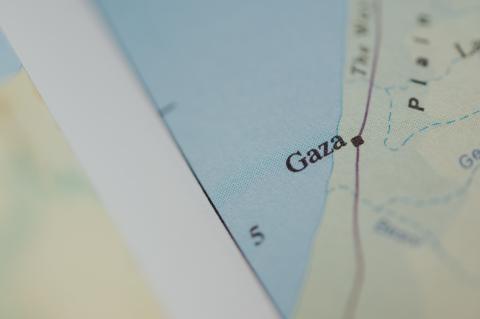Aftershocks and collapsing buildings have created additional hazards for rescue teams scrambling to save survivors from the 7.8-magnitude earthquake near the Turkish city of Gaziantep in the early hours of Monday morning. The trail of death and destruction extends across 10 Turkish provinces and parts of north-western Syria, in Turkish cities from Antakya to Diyarbakir, to the Syrian governates of Latakia, Aleppo and opposition-held Idlib.
As of Friday morning, more than 16,500 deaths had been reported in Türkiye and a further 3,500 in Syria. The World Health Organisation expects the death toll to rise considerably and the impacts in northern Syria especially will be severe on a population that has endured a decade of war and has received little international aid. Affected Turkish populations face their own challenges, which come on top of a deteriorating economic outlook, rising inflation and a tense political environment ahead of a general election tentatively scheduled for May.
The fallout from the earthquake is also likely to shift the geopolitical dynamics of the eastern Mediterranean.
Indicative of the earthquake’s severity was Türkiye’s Interior Minister Süleyman Soylu’s urgent declaration of a stage four emergency that included requests for international assistance. Saudi Arabia, the United Arab Emirates, Kuwait and Jordan promptly responded, undertaking to dispatch aid and rescue workers. Türkiye’s western allies in the United States, NATO and the European Union similarly rallied, with a global rescue effort rapidly taking shape.
Perhaps less expected were messages of sympathy from Türkiye’s immediate neighbours Greece and Armenia, both of which have complicated relations with Ankara. Greek Prime Minister Kyriakos Mitsotakis spoke to Türkiye’s President Recep Tayyip Erdoǧan offering his condolences and pledging resources to help Türkiye’s affected communities. Greek rescue teams were soon on the ground and pulling victims from the rubble.
It was not only through official channels that Greeks expressed solidarity. Social media is abuzz with Turks thanking their Greek komşus (neighbours) for a flood of material and moral support. The Turkish embassy in Athens tweeted its appreciation for flowers left at its doorstep by Greek passers-by.
Meanwhile, Armenian Prime Minister Nikol Pashinyan conveyed his sympathies and said his country was ready to provide assistance. Most surprising of all was a message in Kurdish to the Turkish people from Mazloum Abdi, leader of the Syrian Democratic Forces, whom Türkiye categorises as a terrorist.

All of this comes after Erdoǧan and several of his ministers have increasingly adopted confrontational international postures. Tensions have been particularly high in the eastern Mediterranean as Türkiye seeks to extend an exclusive economic zone in line with its Mavi Vatan (Blue Homeland) naval doctrine.
Last year Erdoǧan accused Greece of illegally militarising islands in the Aegean. Threatening to redress such purported wrongs, Erdoǧan declared menacingly, “We can come all of a sudden at night,” repeating a warning he had earlier made against Kurdish militias in Syria. To underscore Erdoǧan’s point, Türkiye’s Defence Minister, former four-star general Hulusi Akar, donned aviator garb joining an F-16 flyover above the Aegean. And only three weeks ago, while talking to a local audience, Erdoǧan directed veiled threats at Greek PM Mitsotakis, also breezily quipping that Turkish-made Typhoon missiles can reach Athens.
Such episodes may be politicking on Erdoǧan’s part, increasing urgent as his political stocks slide, but they hardly foster a stable diplomatic environment. They are also indicative of a foreign policy cohort that is anxious about Türkiye’s place in the world and prone to lashing out at perceived enemies. Erdoǧan recently claimed that “imperialist colonialists” who have long targeted Türkiye have increased their efforts during his rule, while Interior Minister Soylu accused the West of playing “psychological games” with Türkiye and telling the United States to keep its “filthy hands” to itself.
Relations between Türkiye and the West have recently deteriorated, notably in disputes over Finland and Sweden’s desire to join NATO. Ankara has refused to approve their admission accusing both of harbouring members of the Kurdistan Workers’ Party (PKK), which Türkiye denotes a terrorist organisation. A Swedish far-right politician’s stunt of burning a Quran outside the Turkish embassy in Stockholm incensed many Turks, with Erdoǧan all but saying that Sweden should forget about NATO membership. Despite its entry into NATO apparently being derailed, Stockholm has approved the dispatch of significant funds, equipment and personnel to earthquake affected areas in Türkiye and Syria.
It remains to be seen if Türkiye will recalibrate its foreign policy in light of the humanitarian contributions and shows of solidarity it is receiving, including from some it has recently been sparring with. The 1999 earthquake that rocked Türkiye’s western city of Izmit prompted similar spontaneous outpourings of support and sympathy, and is widely credited with spurring a new chapter of diplomatic engagement in the Aegean in the early 2000s.
An oft-repeated Turkish proverb states that a Turk has no friends but another Turk (Türk’ün Türk’ten başka dostu yoktur). Genuine international concern and deliveries of aid to Türkiye should put paid to such a misconception, and it may be that Turkish policy makers will realise there is little political capital in adopting belligerent international postures and more to be gained through constructive engagement with its neighbours.

